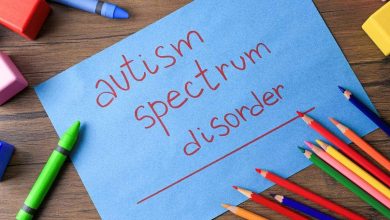How Can Rehabilitation Help After An Intervention?

A drug addict is not the only individual who experiences mental and physical damage, but the whole family suffers with him. It is also the ground reality that family support plays a crucial role in helping an individual overcome his addiction problem. All family members and friends are responsible for intervening and helping those struggling with substance addiction.
Intervention is a process that requires the family to encourage the addict to seek help and take the proper measures for recovery. It is essential to assess the mental and emotional condition of the patient and not to say anything harmful to the patient. You have to stay positive to motivate an individual by understanding the impact of recovery treatment. Once a person agrees to the treatment, rehabilitation becomes essential. You have to choose the treatment center carefully to ensure that the recovery process goes smoothly. Let’s find out how rehabilitation helps after an intervention.
Assessment and Admission
After the intervention is completed, the admission process in the treatment center will begin. The intake process requires you to meet with professionals to discuss the possible treatment options. Experts usually create a customized treatment plan according to the medical and emotional condition of the patient. The treatment team carries out extensive medical examinations, including psychological assessments. These assessments help determine whether private treatment for drug addiction is suitable or outbound treatment will be more effective.
Every case is different, so medical experts have to assess the patient’s drug use history and family history. It is essential to inform the medical team if a patient has any mental disorder or illness to discuss further treatment options. It can play a vital role in the patient’s recovery, so you have to inform the experts of everything in detail to the experts during the admission process.
Detoxification
Once the assessment of the patient is completed, it is necessary to detox the body; It is the process of removing the addictive elements from the patient’s body. It can be an uncomfortable procedure done under the medical team’s supervision to ensure patient safety.
The detoxification process varies according to the nature of the substances that a drug addict has consumed. Before starting the detoxification process, an expert examines the patient to look for certain withdrawal risks and complications. The fear of detoxification keeps many addicts away from the treatment, so family members should help the patient get rid of this fear.
Recommendation of Treatment
When detox is completed successfully, the next phase analyzes the underlying issues that lead a person to become an addict. Based on assessments, the treatment setting is recommended to the patient. Outpatient, inpatient, and partial hospitalization are standard recommended methods for substance abusers.
The inpatient treatment method starts by taking the patients out of the home environment and admitting them to 24/7 medical care. In contrast, outpatient would be the right option if an individual has professional or family obligations. Also, you should know that an outpatient is only a good option when you are dealing with short-lived addictions. But if you are dealing with long-term addiction, you should not opt for this option.
When it comes to partial hospitalization programs, it is similar to the inpatient treatment method, but the level of care is distinct. This method treats moderate or mild withdrawal symptoms who do not need medical supervision.
Therapy Recommendation
Therapy is the essential rehabilitation phase as it focuses on long-term recovery. Continuous counseling sessions are conducted to address the root cause of your addiction. It helps patients move on with their lives, pursue their career goals, and have a life clean from any drugs.
There are different therapies, including individual behavioral therapy, group therapy, and family therapy. In individual behavior therapy, patients are forced to do self-analysis to assess how they started consuming the drugs. Experts outline strategies for patients to follow and bring improvement in themselves. They are trained to determine the addiction triggers and deal with them to prevent relapse.
Group therapy is conducted where drug addicts are provided an opportunity to interact. It allows them to understand the reasons for addiction and the harmful effects of drug abuse. It plays a main role in the recovery of the individuals as they get to know they are not alone in this fight against drugs.
In family therapy, family members are invited to attend therapy sessions. It gives patients’ families the information they need to know about their involvement in their recovery. Family is one of the most prominent supporting pillars for any individual, so this therapy aims to empower families to provide moral and emotional support to the patients. Rehab Dayton is an excellent place for patients.
Aftercare and Recovery
If the patient has completed the rehabilitation program, family members should not relax. The recovery work comes into play once rehabilitation is finished, and it is a lifelong procedure. The patient should consult the counselor to discuss the aftercare plan. Addiction treatment centers have follow-up services to help patients pursue a sober lifestyle.
Depending on the condition of patients, some individuals have to attend post-rehab therapy sessions for some time. The recovery pace is different in every individual, so it takes time for patients to get back to normal life. Some individuals get back on track instantly when the rehabilitation is finished. At the same time, some of the patients take time in aftercare recovery.
Conclusion
Whether you are dealing with long-term or short-term addiction, it is essential to seek treatment through rehabilitation. A family should take the proper measures to help their loved ones struggling because of drug addiction. It is one of the worst things that could ever happen to any individual. It is just like killing yourself every day and every moment. Firstly, the family should convince the patient to start treatment by getting admitted to the rehab facility. Then the rest of the process will follow. But if a family is not taking the proper steps to convince the patient, how can they expect improvement in the patient’s condition? So, intervention is the critical part of the recovery process, and the rest, rehabilitation, will do.




